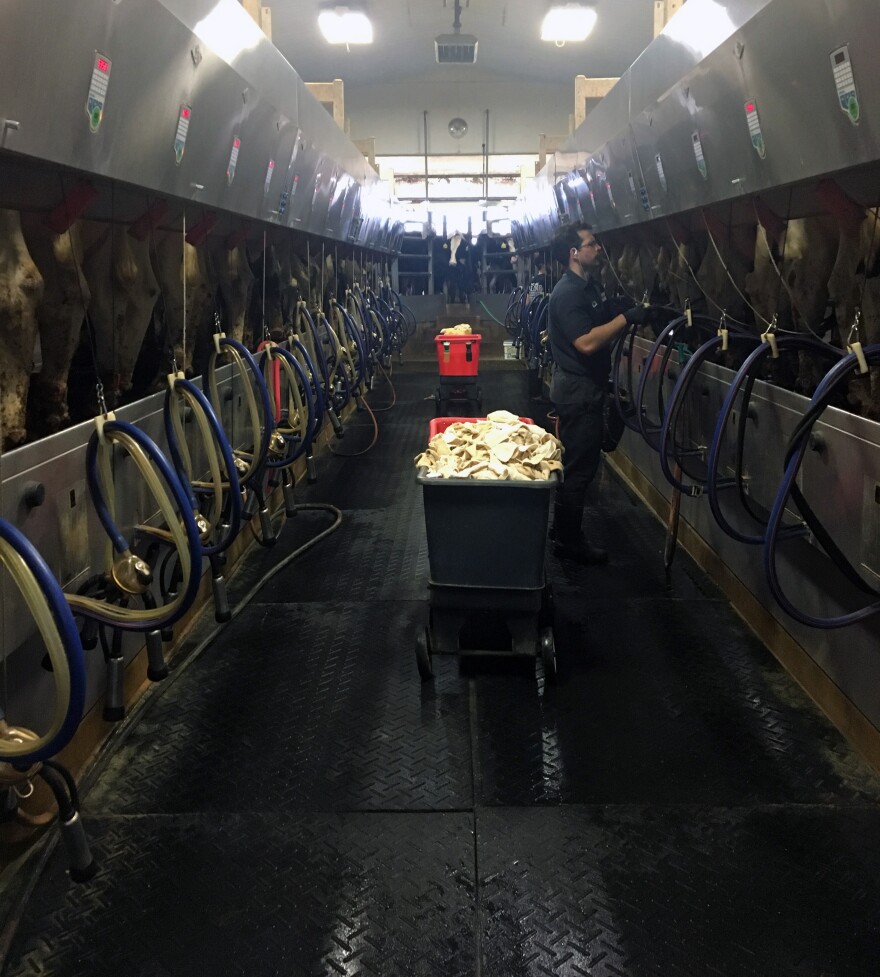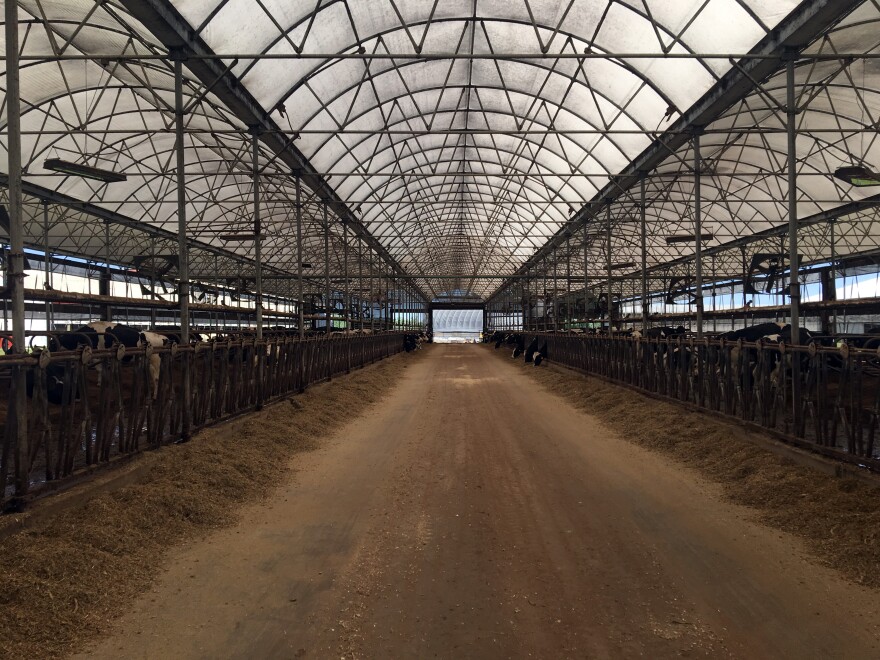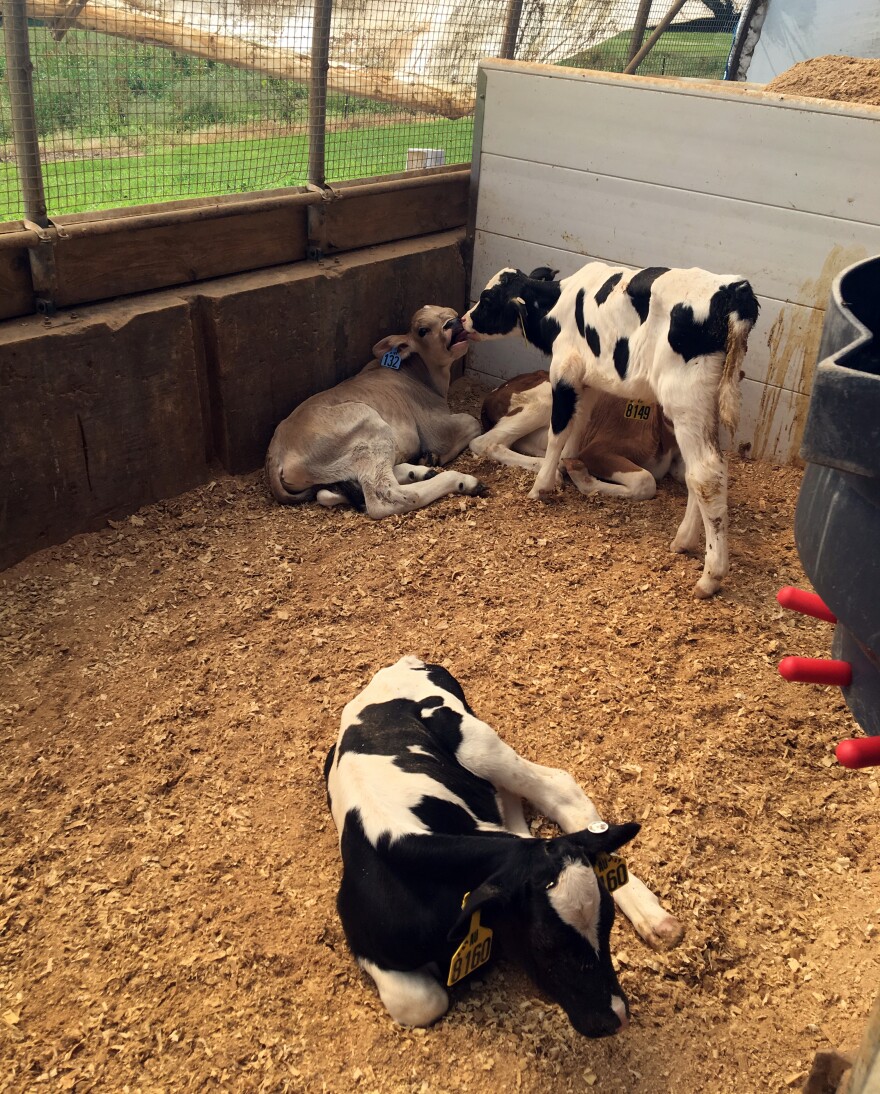Andrews University in Berrien Springs is closing down it’s dairy farm after more than a hundred years.
The dairy at Andrews is for teaching, but it’s also a working farm. Students in agriculture programs and other can work on the farm to offset thier tuition. The milk the cows produce is sold to a co-op and used mostly by a cheese maker in Benton Harbor.

Lately, the college hasn’t been able to get a good price for milk. They need $16 a hundredweight for the milk to break even.
“Up until the last three years it’s made about a hundred thousand dollars a year," said Senior Vice President for Finance Larry Schalk. "But the last three years with the prices of milk what it is it means we’ve had significant losses. We aren’t talking a thousand or tens of thousands, we’re talking in the hundred of thousands.”
Lately there’s a glut in the market.
For consumers that means milk is cheaper. For Andrews Dairy it means they can get $14.50 per hundredweight, tops.
“Will it get above 16? Probably will. Can it sustain itself above $16 per hundredweight? Our assessment for that was unlikely,” said Schalk.
The farm at Andrews is used to teach dairy herd management, pre-veterinary medicine, and international agriculture development.

Students go on to work as vets, or dairy farmers or for non-profits like Heifer International or the Peace Corp.
The programs are run by Kathy Koudele, the chair of the college's agriculture department. Koudele did her undergraduate work at Andrews in the 70s, the first woman in the program. “I think they didn’t really know how to take it quite at first. But the herdsman at the time, David Hodge, He really took me under his wing as his daughter, so he was really kind to me.”
Well before that, when the dairy started in 1907, it was just a small barn built by students, with a handful of cows that were all milked by hand by someone sitting on a stool in the stall.
In the public space of the dairy there are rows of old photographs including of the dairy. Koudele shows the off, “You can see here hand milking, sitting on a stool, you can only imagine what that would be like.”
It's a tradition at Seventh-Day Adventist College's like Andrews to use physical labor and work as part of education. "There's really been a strong emphasis on working as part of your education," Steven Payne the vice president of marketing and communications said. "Not just to offset but as a values sort of thing as well."
Today the cows at the dairy are milked by machine, though a worker, many of them students, still has to do some of the job.
Every day at 3 and 11 in the morning and 7 at night the cows are brought inside to be milked.All 600-plus of them, 40 at a time.
“We’re asking the cow," Koudele said "We’re not taking the milk from her we’re asking her, please give us your milk and she gives it by feeling relaxed and releasing oxytocin.”
Koudele said a big priority is to keep the cows happy so they keep wanting to give milk. That extends to the barn.
“This barn is a kind of experimental barn, we built this in '99, it’s sort of a plastic barn you can see kind of green house,” Koudele said. “That’s exactly what it is, and we’re very happy with it, it’s really light and bright and the cows really like it.”
Inside it smells like silage, a mixture of mostly corn, that’s fermented and the cows eat it. It smells sort of like pickle-bread, “It gets kind of a pickley odor, smells a little bit like vinegar, like a little acetic acid,” Koudele decribed.
That silage the cows eat is the reason Andrews Dairy will stay open for another year. They have enough to feed the cow for a year, and on the market it’s basically worthless.
So instead of wasting it they’ll use the year of feed to decide what exactly to do with the cows.

They may sell the herd as a whole, or auction it off in parts, or sell the calves off early, then sell the herd later.
“So I can’t tell you which one of those will happen," Schalk said. "So one of the good things about the silage issue and having to wait twelve months, is gives us a time during that twelve month period is making the best decisions that we can for coming to closure in a year.”
As for the students, “We are hoping to transform some of these buildings into educational centers that involve more than one species," Koudele said. "That would actually enhance our student’s learning.”
The dairy will close in the summer of 2019. Until then it will continue to run public milkings three times a day.


